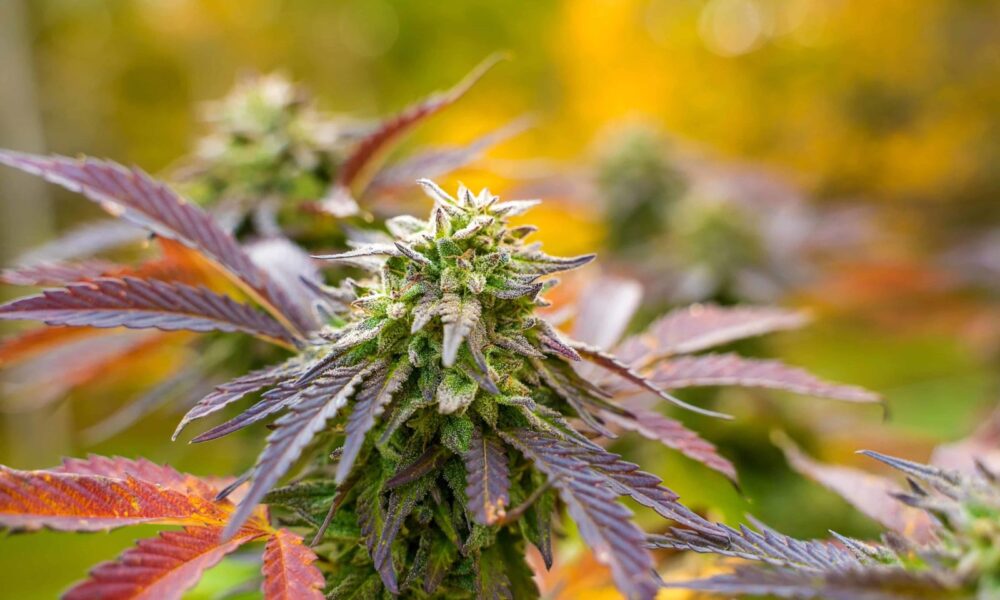Business
First Medical Cannabis Crop Harvest Begins in North Carolina

The Eastern Band of Cherokee Indians (EBCI) announced that it would officially begin harvesting its first medical cannabis crop.
According to The Charlotte Observer, the cultivation site is located in the eastern part of the state in The Qualla Boundary. In addition to beginning its first harvest on Nov. 18, the tribe also plans to open the largest medical cannabis dispensary in the state sometime in 2023, which will be located in an old building previously used for bingo. “I’m really proud of my tribe taking this step, one with the betterment of this community in mind,” said general manager of Qualla Enterprises LLC, Forrest Parker.
The cannabis business is expected to create 400 to 500 new jobs (with “several hundred” applications already received for various positions), which will increase the EBCI’s total employment number to 7,500. “Most special to me is the employment opportunity,” Parker said. “We can teach them skills they can use for the rest of their lives in what is a very well-paying industry.” Over the summer, the EBCI employed about 40 people to work on cultivation, with about 80% of them members of the tribe.
The EBCI’s Tribal Council approved Ordinance No. 539, which legalized medical cannabis on tribal land in August 2021. Far beyond the state’s progress on medical cannabis legislation, the Tribal Council saw cannabis as a benefit for medical patients. “The Council’s approval of a medical marijuana ordinance is a testament to the changing attitudes toward legal marijuana and a recognition of the growing body of evidence that supports cannabis as medicine, particularly for those with debilitating conditions like cancer and chronic pain,” said Principal Chief Richard Sneed.
According to the EBCI cannabis website, the tribe will control all aspects of production. “It all begins as a seed…and develops into the plant that is the basis to all cannabis. EBCI Farms will be the source for all of its products that are sold to the public. Everything from seed to sale begins here,” the website states. Currently, the business plans to produce cannabis flower, pre-rolls, edibles, concentrates, and topicals.
“It’s a vertical market. We have to plant it. We have to cultivate it. We have to harvest it. We have to process it. We have to package it and move through all of that network of product and get it there. It’s a lot of people,” Parker told ABC13 News.
The ECBI also has its own Cannabis Control Board, which consists of five healthcare and law enforcement experts, to manage the tribe’s cannabis regulations. Current rules dictate that non-tribe members may purchase up to one ounce of cannabis per day, but not to exceed more than six ounces in a month. This also extends to a limit of 2,500 milligrams of THC in products per day, but not more than 10,000 milligrams in a month.
The New York-based Oneida Indian Nation announced in September that it would launch a seed-to-sale cannabis business sometime in 2023. Also in New York, the Saint Regis (Akwesasne) Mohawk Tribe partnered with actor Jim Belushi to open a dispensary on Oct. 27, called Belushi’s Farm Akwesasne.
Additionally, the Seneca Nation of Indians announced that its building a cannabis dispensary in the city of Niagara Falls, New York, which is slated to open in February 2023 as well. “After extensive research and planning, the Seneca Nation is excited to create a new, Nation-owned business in the growing and competitive cannabis market,” said Seneca Nation President Rickey Armstrong Sr.
There are many tribe-owned and operated cannabis dispensaries throughout the country already, including Mountain Source Santa Ysabel operated by the Iipay Nation Tribe (located northeast of San Diego), to the Paiute-owned NuWu Cannabis Marketplace in Nevada, and the Muckleshoot Indian Tribe’s Joint Rivers dispensary in Washington State.
The Indigenous Cannabis Industry Association (ICIA) hosted the National Indigenous Cannabis Policy Summit on Nov. 15-16 in Washington, D.C., which covered a variety of topics in relation to create solutions to common challenges that tribes face in the industry. “The Summit brings together Tribal leaders, elected and government officials, business, healthcare, veterans groups, and advocacy organizations to provide solutions to the most pressing challenges and opportunities growing for Indian Country,” the event website states.
Source: https://hightimes.com/news/first-medical-cannabis-crop-harvest-begins-in-north-carolina/